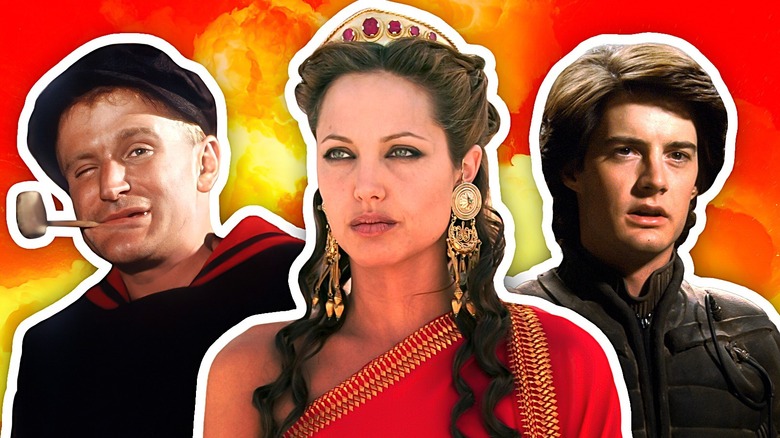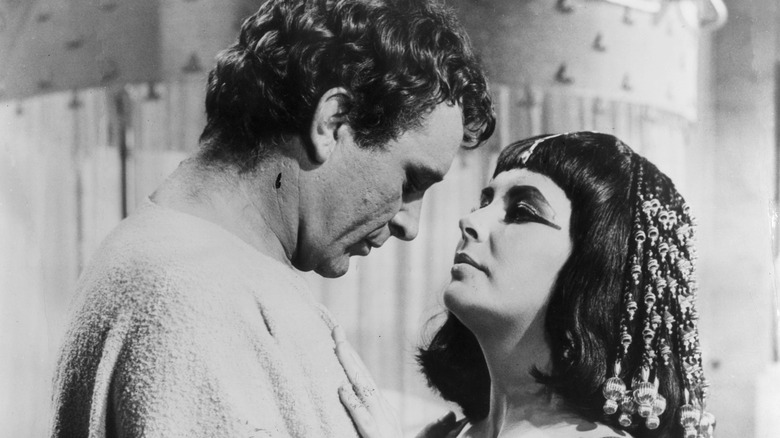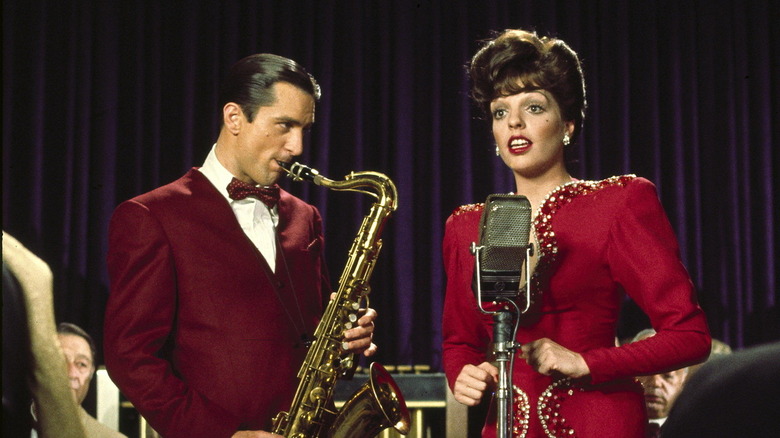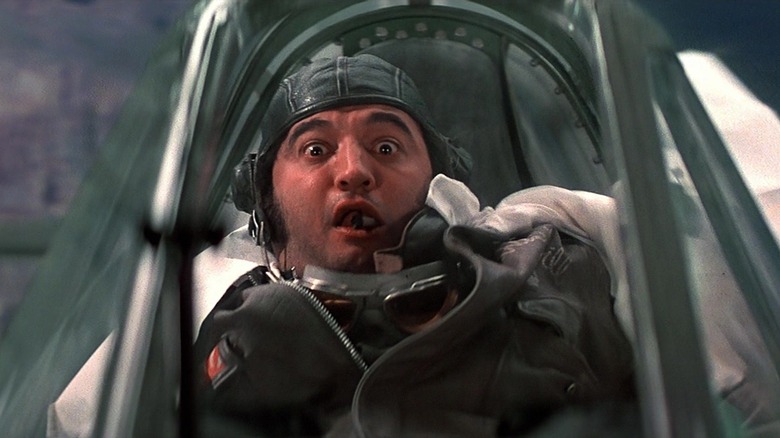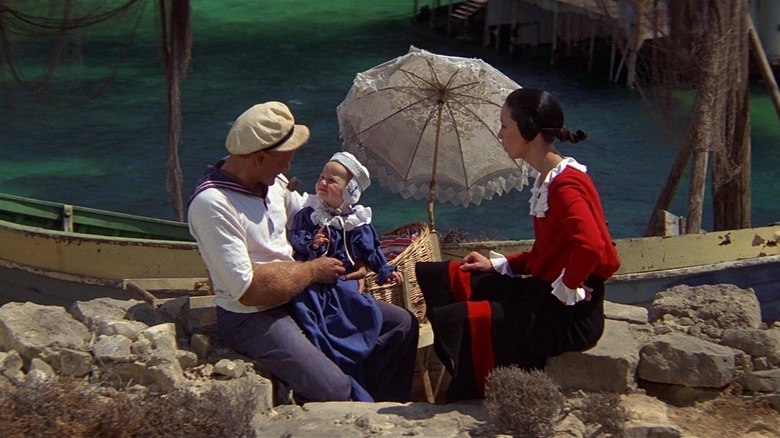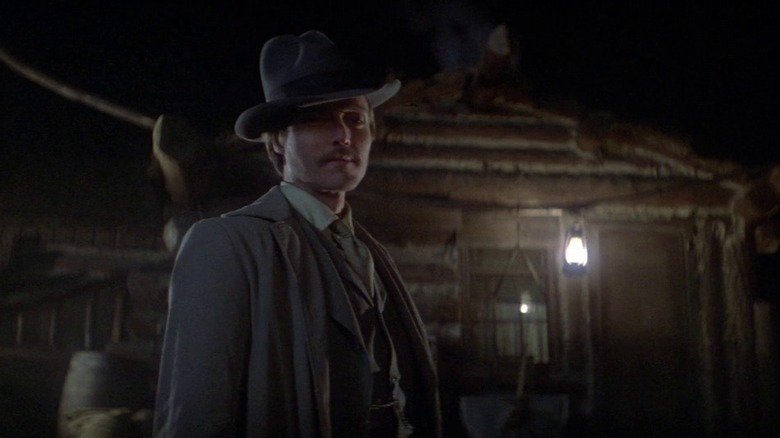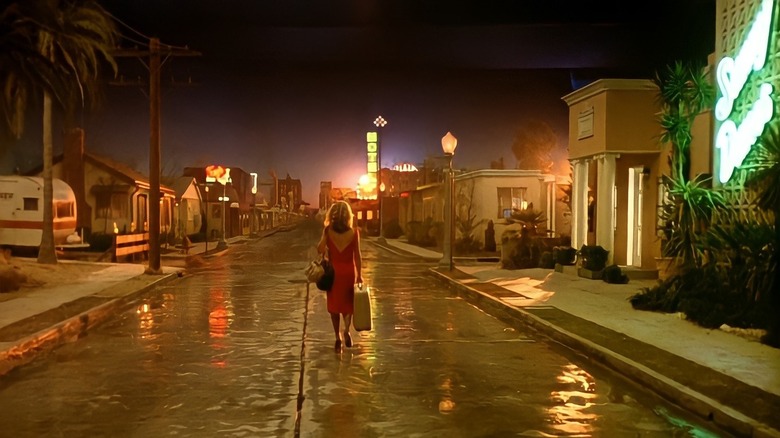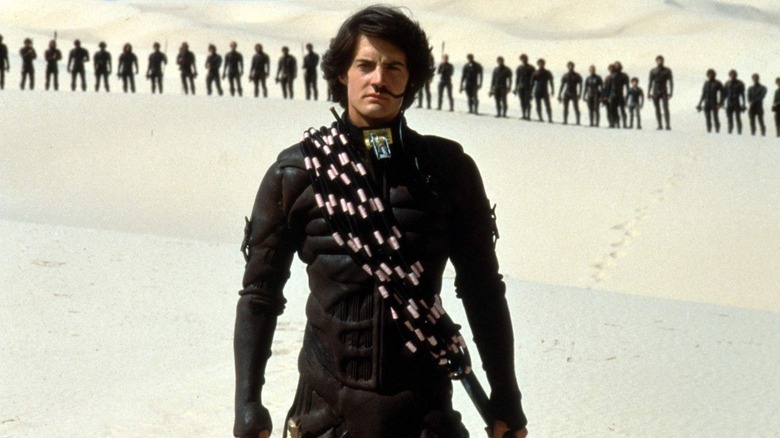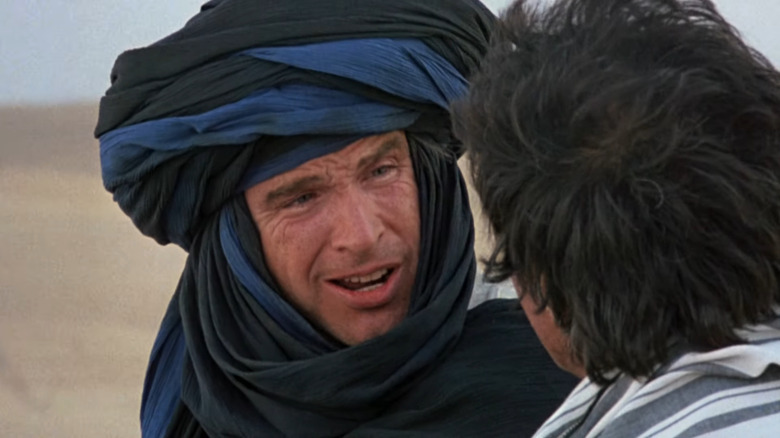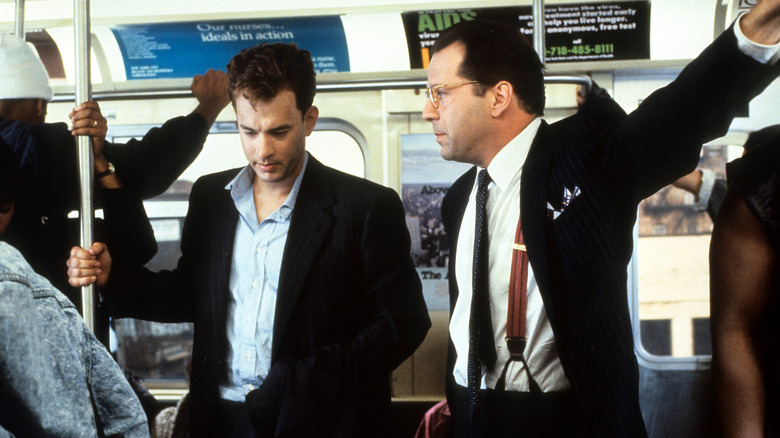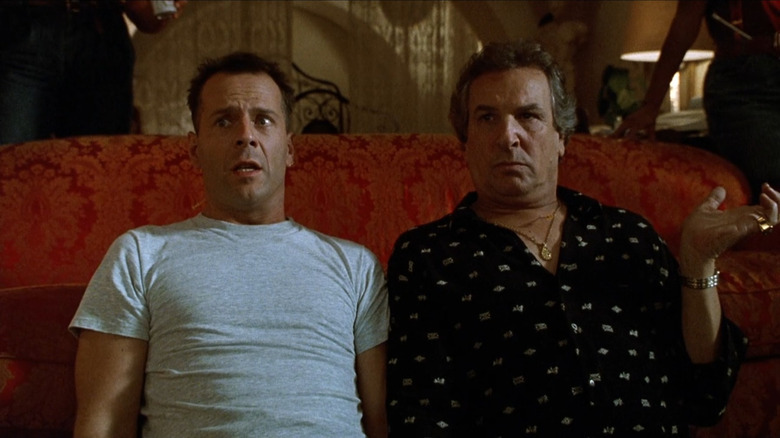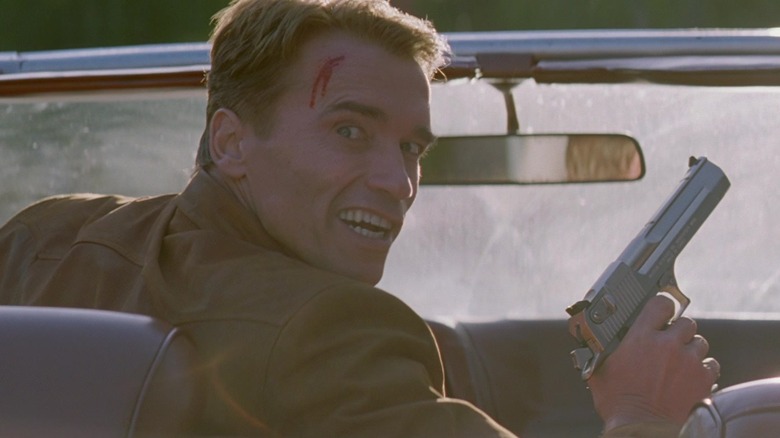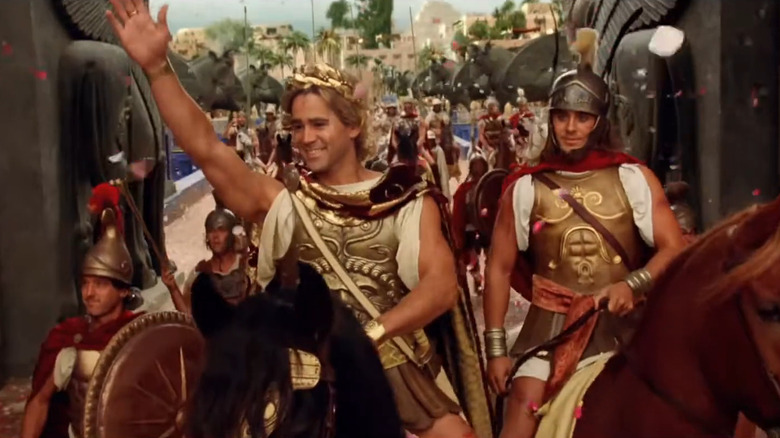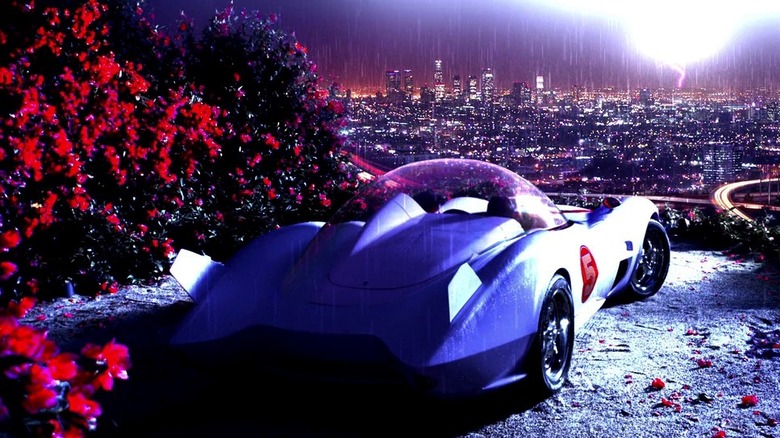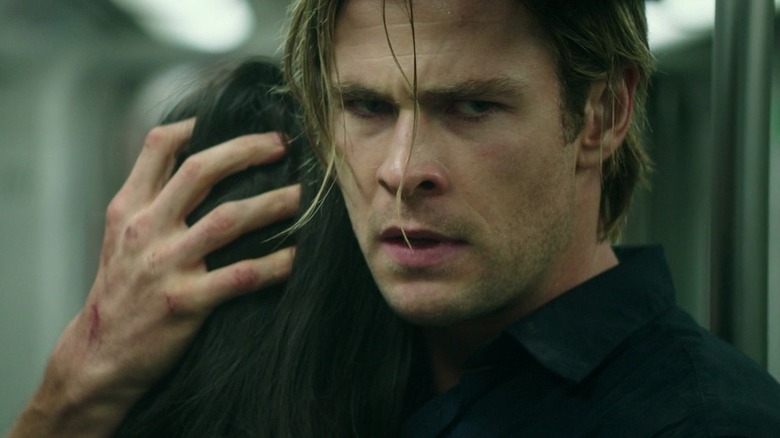Notorious Box Office Bombs That Are Actually Worth Watching
Disaster! Train wreck! Catastrophe! Anyone who reads the box office reports on a regular basis has undoubtedly seen these words used to describe movies that fail to connect with audiences. Yet every once in a while, a film comes along that flops so spectacularly, loses so much money, and earns such horrendous reviews that only one word can accurately describe it: bomb. The dread of every star, director, and studio head, a bomb can end careers, ruin corporations, and, most importantly, dash hopes for a sequel. More often than not, a bomb is quickly forgotten, relegated to the ash heap of history, as everyone involved does their best to attach themselves to a surefire hit.
Sometimes, however, a bomb is reassessed, and what was once deemed an embarrassing failure becomes an unfairly maligned gem. Here are 14 notorious box office bombs that are actually worth watching, including a few secret masterpieces.
Cleopatra (1963)
Few films can be credited as both a success and a failure, yet such was the odd fate of "Cleopatra." A runaway production that was plagued with scandals — the replacement of director Rouben Mamoulian with Joseph L. Mankiewicz, a tabloid love affair between Elizabeth Taylor and Richard Burton, and an ever-increasing budget due to constant delays — this epic retelling of the Egyptian queen's reign managed to both nearly bankrupt 20th Century Fox and end up as 1963's highest grossing film. It even earned nine Oscar nominations, including best picture, much to the puzzlement of critics who found it to be a bloated, overlong bore (it won four prizes: color cinematography, color art direction, color costume design, and sound).
So how can "Cleopatra" be a box office bomb? In short, it didn't earn enough money to recoup its costs (at a budget of $44 million, it was the most expensive film ever made at that time), at least not until Fox sold off the television rights. And for the longest time, that was the film's legacy. But for all of the stories of Hollywood excess gone haywire, what remains is a movie that modern critics like Richard Brody of The New Yorker consider to be "a personal artistic project of the highest order" and "a heartbreaking melodrama that runs on the chemistry between Elizabeth Taylor and Richard Burton."
New York, New York (1977)
Martin Scorsese has often defied expectations about the kinds of films he makes, and you couldn't think of a sharper U-turn than Scorsese directing "New York, New York" immediately after "Taxi Driver" in 1977. Combining the technicolor artificiality of the old Hollywood with the gritty naturalism of the new, it centers on a tumultuous love affair between a jazz musician (Robert De Niro) and a singer (Liza Minnelli) who meet on V-J Day. It was the director's most ambitious production to date, made all the more difficult by his cocaine addiction and an on-set romance with Minnelli. Made on a then-sizable budget of $14 million, it grossed just $16 million, well below expectations. Critics at the time found the film to be an uneasy pairing of Scorsese's influences — a Vincente Minnelli musical as directed by John Cassavetes — and its failure briefly tarnished the director's pristine reputation.
For a long time, the most significant thing about "New York, New York" was the hit title song it produced, penned by John Kander and Fred Ebb (and made immortal by Frank Sinatra). However, decades later, viewers have found much to appreciate about Scorsese's dissection of classic Hollywood glamour. "Deceptively decked out in elaborate sets, colorful costumes, and great big production numbers, the film then proceeds to dismantle '40s movie myths about love, romance, and happy endings," wrote Michael Sauter for Entertainment Weekly in a 1990 retrospective.
1941 (1979)
Steven Spielberg's reign as king of the box office has hit a few snags throughout the years, most famously with his big-budget farce "1941." After the successes of "Jaws" in 1975 and "Close Encounters of the Third Kind" in 1977, Spielberg was given a blank check for this WWII comedy about a seaside California town preparing for a Japanese invasion after Pearl Harbor. Yet even an all-star cast headlined by "Saturday Night Live" players John Belushi and Dan Aykroyd couldn't pique audience interest, and the film grossed well below the director's previous two films at the domestic box office. The reviews were even worse, with many critics wondering if Spielberg had lost his magic touch (spoiler alert: he hadn't).
Though "1941" may not share the same reputation as later Spielberg classics like "Raiders of the Lost Ark," "E.T. the Extra-Terrestrial," or "Jurassic Park," it still has its fair share of fans. Craig Lindsey of The Guardian argued that the film "seems more metaphorical and prescient now than it did when released. It shows Americans running around losing their minds when they think a threat is imminent, something you could say Americans have been doing ever since 9/11." And even back in 1980, Tom Milne of Sight & Sound advocated for its appreciation: "'1941' is perhaps one of those films that should be seen twice, so that disappointed expectations over the wayward behaviour of the slapstick no longer get in the way of pleasure over what goes on alongside it." He went on to praise the dance hall scene, calling it "more brilliantly directed than all of 'Jaws' and 'Close Encounters' put together." Now that's high praise.
Popeye (1980)
Robert Altman spent the 1980s in director jail after the failure of "Popeye," a big-budget adaptation of the long-running comic strip about a one-eyed sailor (Robin Williams) who loves spinach and his girlfriend, Olive Oyl (Shelley Duvall). A co-production between Paramount Pictures and Walt Disney Studios, the film was a lavish musical with original songs by Harry Nilsson. A meticulous recreation of Popeye's seaport town of Sweethaven was built on the island of Malta (which you can still visit today), and numerous delays — namely bad weather and illicit substances – caused the budget to climb to $20 million. Its $49 million worldwide gross was well below the blockbuster expectations the studios had, and the mixed to negative reviews certainly didn't help matters.
On the other hand, "Popeye" had its notable fans, including Roger Ebert, who said Altman "takes one of the most artificial and limiting of art forms — the comic strip — and raises it to the level of high comedy and high spirits." Its singular style feels unique in an age of endless comic book movies with relentless CGI that often feel like carbon copies of one another, and it's more than worth revisiting today.
Heaven's Gate (1980)
The great granddaddy of box office bombs, "Heaven's Gate," almost single-handedly destroyed the career of director Michael Cimino, bankrupted studio United Artists, and ended the New Hollywood renaissance of the 1970s. Fresh off his Oscar wins for "The Deer Hunter," Cimino moved on to an epic retelling of the Johnson County War, with Kris Kristofferson playing a sheriff trying to protect immigrant farmers from encroaching cattle ranchers. No expense was spared in recreating 1890s Wyoming, and the production went over-budget and over-schedule, costing a then-whopping $44 million. By the time the film, which clocked in at three hours and 39 minutes, finally opened in New York, any hopes that critics would champion it were dashed when the reviews came out. Many of them deemed it excessive, sluggish, and ugly. Cimino's attempts to save the film by pulling it from theaters and slashing an hour from its runtime only added to its reputation as an unsalvageable mess.
Alas, the tide of critical opinion has turned, thanks in large part to a Criterion release that restored Cimino's original vision. In 1980, New York Times critic Vincent Canby called the film "an unqualified disaster." Yet 33 years later, Manohla Dargis, writing in the same paper, said it was "a film with greatness in it but also longueurs, a fascinating artifact and a monument to Mr. Cimino's towering ambitions, as much for himself as for his art." Its 6.7 rating on IMDb is nothing to sneeze at, either.
One from the Heart (1982)
After "Apocalypse Now," "The Conversation," and the first two "Godfather" films, Francis Ford Coppola had the freedom to do whatever he wanted, and what he wanted to do was "One from the Heart." A throwback to the Technicolor musicals of Hollywood's Golden Age, the romantic drama about a feuding couple (Frederic Forrest and Teri Garr) enjoying a night of infidelity was produced by Coppola's American Zoetrope, and his recreation of the Las Vegas strip on his soundstages caused the budget to balloon from $15 to $23 million. Coppola's dreams of creating a dream factory to rival the majors were dashed when its first production was released: the film failed to click with critics and audiences, and Zoetrope had to file for bankruptcy when it didn't recoup its investment.
Between attempts to finance his passion project "Megalopolis," Coppola has been busy recutting some of his failures, and in 2024 he brought "One from the Heart" back into theaters with a 4K restoration. The new version, retitled "One from the Heart: Reprise," was met with a warmer reception from critics like Peter Bradshaw of The Guardian, who called it "a heartfelt romance-fantasia with charm and often a kind of goofy innocence." Richard Brody of The New Yorker also described it positively, dubbing it "a movie that takes a drastic and original approach to the very notion of character, to the essence of subjectivity in cinema."
Dune (1984)
Long before Denis Villeneuve traveled to Arrakis, David Lynch tried his hand at an adaptation of Frank Herbert's sci-fi classic. A passion project for mega-producer Dino De Laurentiis, Lynch's "Dune" was the avant-garde director's first attempt at big studio filmmaking, and it didn't quite go so well. In all fairness, Herbert's futuristic epic about a young prince (Kyle MacLachlan) who liberates a desert planet from the rule of an evil emperor (José Ferrer) is a massive undertaking, packed with tons of characters, subplots, and a dense mythology (hence why Villeneuve decided to split his adaptation into two parts). Lynch's attempt to cram the entire book into one film was met with condemnation from critics, who found it too confusing and overstuffed. The film also failed to make back its $40 million production budget, with many in the industry dubbing it, per Deadline, a science-fiction version of "Heaven's Gate."
Lynch would later disown the film, and he quickly rehabilitated his career with "Blue Velvet" and "Twin Peaks." Despite that, it has endured as a cult oddity, with many praising its surreal images and Lynchian set pieces. As Daniel D. Snyder of The Atlantic puts it, "Dune" is "a deeply flawed work that failed as a commercial enterprise but still managed to capture and distill essential portions of one of science fiction's densest works." Of course, in 1984 Herbert told ET that even his novel wasn't a hit right away. "The critics panned it when it first came out and it was rejected 22 times," he revealed. It seems that both the novel and Lynch's adaptation were too early for their respective times, as they've both become much more favored in recent years.
Ishtar (1987)
To call the reaction to "Ishtar" catastrophic would be putting it mildly. The big-budget comedy about a pair of mediocre lounge singers (Warren Beatty and Dustin Hoffman) who get caught in the middle of a Cold War conflict after booking a gig in Morocco was greeted with downright hostility from critics, many of whom declared it a disaster. In many ways, the verdict was already in before the film was ever seen, as stories of a troubled production blanketed the tabloids. Shooting in the desert caused the budget to soar to $50 million or $51 million, while writer-director Elaine May feuded with Beatty — who was also the film's producer — and butted heads with the new management at Columbia Pictures over post-production. Its paltry $14 million box office performance managed to both end May's directorial career and debilitate the studio that produced it (Coca-Cola sold Columbia to Sony shortly thereafter).
The sands of time have rendered a different verdict, and the film that was once declared one of the worst ever made earned votes from critic Colin Becker and director Daniel Goldhaber on the annual "Sight and Sound" poll (where film industry professionals vote for the top 10 best films of all time). Richard Brody of The New Yorker went so far as to call it "a wrongly maligned masterwork," filled with "a level of invention, a depth of reflection, and a tangle of emotions" lacking in most other films.
The Bonfire of the Vanities (1990)
Those who have read Julie Salamon's book "The Devil's Candy" are well aware of the numerous production problems that beset Brian De Palma's "The Bonfire of the Vanities." Expectations were high for this adaptation of Tom Wolfe's decade-defining bestseller about a Wall Street hotshot (Tom Hanks) who goes on trial for hitting a Black teen with his car, and Warner Bros. pulled out all the stops bringing it to the screen. From the costly recasting of Alan Arkin with Morgan Freeman for the pivotal role of the courtroom judge to the pricey New York City locations, no expense was spared for what was expected to be an Oscar-winning hit. Yet the reviews were abysmal, with critics slamming its cartoonish tone and the casting of Bruce Willis as a drunken tabloid journalist. Audiences stayed away in droves, and the film grossed just $15 million on a $47 million budget.
Nonetheless, as Roger Ebert wrote in his two-and-a-half-star review, "The Bonfire of the Vanities" isn't without its bright spots; he wrote that it "will be enjoyed most by those who haven't read the Tom Wolfe novel." He added, "In its glittering surfaces and snapshot performances, it provides a digest version of the Wolfe story," even if it was lacking its droll tone, dynamic characters, and sarcastic edge. Additionally, a critic for The Seattle Times noted that the movie has "more than enough clever moments to make it a passable entertainment," and specifically highlighted the opening scene, Geraldo Rivera's cameo appearance, and Hanks' touching performance.
Hudson Hawk (1991)
Few films have been as toxically received as "Hudson Hawk," a big-budget attempt to turn Bruce Willis into a comedy star (which, considering the success of the TV show "Moonlighting," he kind of already was). Willis co-wrote the story and the title song to this cartoonish caper about a cat burglar heisting priceless works of art for a dastardly millionaire (Richard E. Grant), and many critics dismissed it as a vanity project. Audience reception wasn't much better, and the film grossed just $17 million against a $65 million budget. Always ones to beat a dead horse, the Razzies awarded it three "prizes": worst picture, worst director (Michael Lehmann), and worst screenplay.
Though there are many for whom the film's surreal sensibilities work, including a few critics who broke from the consensus of the time. "It's an action picture packed dense with the wit of a screwball comedy," raved Hal Hinson in The Washington Post. "And while that may not be a first, it's so bizarrely inventive that being first seems not nearly as important as being best." That's not to mention the more positive reviews from recent critics, like that of The New Yorker who wrote, "I had a lot more fun with 'Hudson Hawk' than I ever did with 'Die Hard' ... because it offers, from beginning to end, such a prodigious, even profligate, display of imagination. It veers off in directions that are as surprising as they are idiosyncratic; the movie's identity is distinctive and integral — it really is a unique experience."
Last Action Hero (1993)
At the time, a re-teaming of Arnold Schwarzenegger with "Predator" director John McTiernan seemed like money in the bank. After all, Schwarzenegger was fresh off the success of "Terminator 2: Judgment Day," and McTiernan was on a hot streak that included "Die Hard" and "The Hunt for Red October." Yet this satirical fantasy, "Last Action Hero," about a young boy (Austin O'Brien) who gets magically transported into a movie starring his favorite action star (Schwarzenegger) was roundly rejected when it hit movie screens in 1993. Critics at the time found it uneven and overblown, and audiences failed to show up, opting instead to watch "Jurassic Park" that same summer. When all was said and done, it grossed $137 million internationally against an $85 million budget.
The film has since developed a cult following and is often ranked among Schwarzenegger's best films. In a 2023 interview with The Hollywood Reporter, the actor called it his most underrated role, saying, "More and more people are seeing it and saying, 'I love this movie.' I'm getting the residual checks, so I know it's true." And a few years before that, Germain Lussier of Gizmodo wrote, "It's wonderful in a way that feels displaced from its own history ... It's a time capsule of meta-movie-magic that John McTiernan and Arnold Schwarzenegger buried in their pasts. One you can now dig up, rediscover, and instantly become a mega-fan of, just like the characters in the film."
Alexander (2004)
Oliver Stone spent most of the '80s and '90s stirring controversy and winning accolades for such films as "Platoon," "Born on the Fourth of July," and "JFK." So expectations were certainly high for "Alexander," a wildly ambitious historical epic about Alexander the Great (Colin Farrell). Unfortunately, Stone suffered a similar fate to the Macedonian leader when his three-hour passion project was finally seen. The vast majority of critics slammed it, calling it too long, too ponderous, and too campy. Its Oscar hopes dashed, audiences felt no need to show up, and "Alexander" failed to recoup its hefty $155 million price tag.
But Stone was never one to give up tinkering, and he's released a 2005 Director's Cut, a 2007 Final Cut, and a 2014 Ultimate Cut. It's the final iteration, which clocks in at 206 minutes, that has inspired the most praise. "While 'Alexander: The Ultimate Cut' may still have some problems that no amount of re-editing or restructuring can overcome, it is now an incontestably better work," wrote Peter Sobczynski for RogerEbert.com, "and deserves to be considered as the proper version of the film in the way that the full length 'Heaven's Gate' is now regarded after its years in the cinematic wilderness."
Speed Racer (2008)
The Wachowskis have long struggled to recapture the box office success of "The Matrix," with even that film's sequels suffering increasingly diminished returns. Perhaps no other film of theirs was considered a bigger failure than "Speed Racer," a hugely expensive adaptation of the long-running manga and anime series. Utilizing the very best that digital technology had to offer at the time, the Wachowskis created a pop art feast for the senses that cost an estimated $120 million. Sadly, this high-speed epic about a young racer (Emile Hirsch) competing to become the World Champion was deemed a little too esoteric for mass audiences, and the film grossed just $43 million at the domestic box office.
The majority of critics weren't kind either, with most of the negative reviews calling it a kids' movie that would make its core audience antsy. Still, some critics vibed with its rollicking aesthetic, including Richard Corliss of Time, who named it one of the top 10 films of the year. "Not every avant-garde FX masterpiece receives instant audience validation," Corliss wrote — and given "Speed Racer's" ascension as a cult classic, he's right.
Blackhat (2015)
Michael Mann spent eight years in the wilderness after the failure of "Blackhat," a $70 million cyber thriller that earned a devastating $19 million worldwide. The reviews certainly didn't help, which ranged from mixed to downright abysmal (although it did have some notable fans upon its release). It's understandable why so many critics would react so negatively. After all, to describe the film's plot would be an exercise in futility, whether you're talking about the American or international cut. In broad strokes, it concerns an imprisoned hacker (Chris Hemsworth) who's sprung from jail to help the FBI and Chinese officials track down a band of cyber-terrorists who've blown up a Hong Kong nuclear plant.
As is the case with many Mann films, "Blackhat" is all about the vibes, and the plot is secondary to how it makes you feel. In a 2018 essay for Oscilloscope Laboratories, Vulture critic Bilge Ebiri summed up the defense its fans often make, saying it presents "a vision of a digital world where seismic events happen with casual ease, while physical reality constantly plays catch-up, all shot in a style that brings a dreamy, free-floating unease to every exchange."
